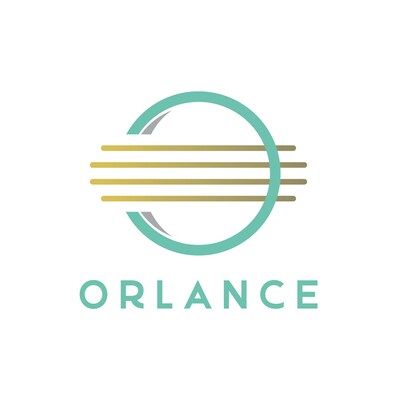SEATTLE, July 10,
2024 /PRNewswire/ -- Seattle-based biotech Orlance, Inc. has been
awarded a Phase I Small Business Innovation Research (SBIR) grant
from the National Institutes of Health (NIH) to develop and
optimize RNA vaccine formulations using its needle-free
MACH-1™ platform. This technology aims to enhance the
safety, stability, and efficacy of RNA vaccines for infectious
diseases, including influenza and Covid-19, along with cancer
immunotherapy applications.

The Orlance MACH-1 gene gun platform technology represents a
potentially significant advancement in RNA vaccine delivery. Unlike
traditional lipid nanoparticle (LNP) RNA vaccine formulations,
which require ultra-cold storage and have been associated with rare
adverse events like myocarditis, the MACH-1 platform utilizes dry,
stable RNA-coated gold microparticles. This method enables direct
delivery into the epidermis, the skin's highly immunocompetent
layer, leading to robust immune responses at much lower doses.
Importantly, MACH-1 results in all vaccine staying within the
target skin tissue and cells, eliminating the movement to
non-target tissues that can result in adverse events potentially
attributable to either a vaccine's active immunogens or the liquid
LNP vehicle fluid carrying the vaccine. Orlance can deliver
all subtypes of RNA vaccines currently in commercial use and under
development such as mRNA and self-amplifying RNA technologies.
The MACH-1 platform works by propelling RNA-coated gold
microparticles directly into the epidermis using a burst of
pressurized gas. Once these microparticles penetrate the outermost
layer of the skin, they are taken up by the immune cells that
reside there. Moreover, this needle-free and painless delivery
system ensures better stability at ambient temperatures, providing
significant supply chain advantages in both developed and
low-resource settings. Finally, MACH-1 vaccines can significantly
improve patient comfort and compliance associated with discomfort
and fear of needle-based injections.
The SBIR-funded project, titled "Gene
Gun-delivered RNA vaccines," will be led by Orlance
Principal Investigators Hannah
Frizzell, PhD and Kenneth
Bagley, PhD. It aims to optimize RNA formulations for MACH-1
gene gun delivery that maximize loading, maintain functional
integrity, and ensure stability and immunogenicity. The team will
compare the effectiveness of MACH-1 delivered RNA vaccines against
traditional LNP/RNA vaccines in inducing systemic and mucosal
immune responses in preclinical models. Preliminary studies have
shown that MACH-1 delivered RNA vaccines can achieve comparable
immunogenicity to LNP/RNA vaccines with significantly lower
doses.
Kristyn Aalto, Orlance co-founder and CEO, explains "While the
breakthrough of mRNA vaccines in recent years has established the
enormous potential of genetic (RNA and DNA) vaccines as a class, we
still have significant work to do to improve utility and overall
global health impact. We are very grateful for NIH's
continued support and are rapidly accomplishing MACH-1 platform
goals that could truly enhance the clinical reach and impact of
genetic vaccines."
The 2 year NIH SBIR grant of $300,000 per year will enable Orlance to conduct
crucial preclinical studies to optimize RNA formulations for gene
gun delivery. This work is expected to pave the way for subsequent
phases of development, ultimately leading to clinical trials.
Ms. Aalto continues, "Orlance already has a well-developed MACH-1
DNA vaccine candidate portfolio, and offering both DNA and RNA
vaccine options allows us to leverage the attributes of both
platforms to provide ideal solutions tuned to the immunogenicity,
protection, and durability profiles sought for specific
indications."
Founded in 2016 as a spin-out from the University of Washington (UW) and gene gun vaccine
innovator Deborah Fuller, PhD,
Professor of Microbiology at UW, Orlance is focused on developing
next-generation MACH-1 vaccines and cancer immunotherapies. With
$13M in SBIR funding awarded to date,
the company has advanced MACH-1 toward readiness for initial
regulatory filings in 2024. Orlance plans to initiate Phase I
clinical trials for its lead infectious disease asset in 2025 and
is actively partnering with other vaccine developers to develop
MACH-1 vaccine and immunotherapy candidates across multiple
indications.
 View original content to download
multimedia:https://www.prnewswire.com/news-releases/orlance-inc-awarded-rna-vaccine-development-grant-302194044.html
View original content to download
multimedia:https://www.prnewswire.com/news-releases/orlance-inc-awarded-rna-vaccine-development-grant-302194044.html
SOURCE Orlance